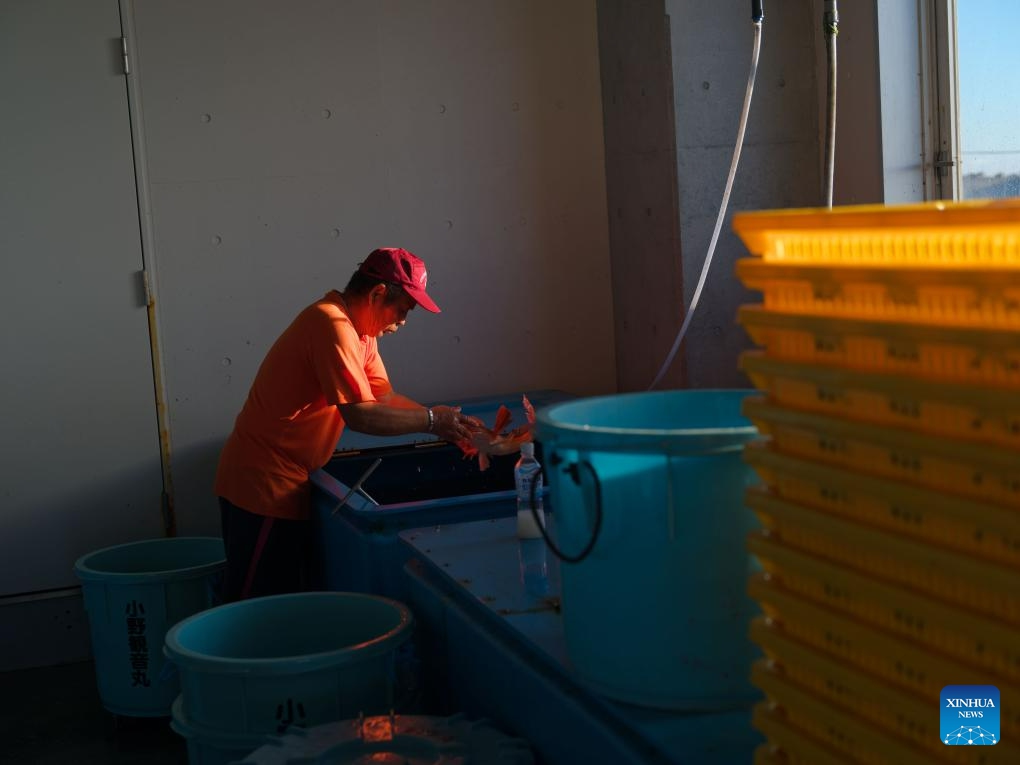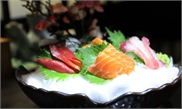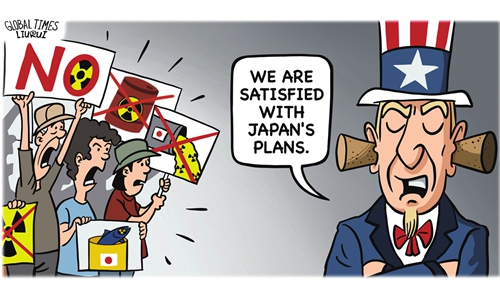Travel companies start canceling tours to Japan due to radioactive water dumping
Impact potentially expanding to export of brands, cultural exchanges

Fisherman Ono Haruo arranges fishes at Tsurishihama Fishing Port in Shinchi Town, Fukushima Prefecture, Japan, Aug. 23, 2023. Japan started releasing nuclear-contaminated wastewater from the crippled Fukushima Daiichi Nuclear Power Plant into the Pacific Ocean on Thursday, despite raging opposition from both at home and abroad. Photo: Xinhua
China's Ministry of Culture and Tourism recently released a notice announcing the third group of approved outbound group tours, with Japan being one of the most popular tourist destinations. However, following the commencement of Japan's dumping of nuclear-contaminated wastewater, cancellations of tours to the country have already begun, local media reported on Sunday.
According to one of China's largest online travel agencies Ctrip, the platform had launched more than 5,000 outbound group tour packages, flights and hotel bundles, covering more than one-third of the countries and regions across the third group of 78 approved countries, including the US, the UK, Japan and Turkey.
However, everything changed when Japan started to dump nuclear-contaminated wastewater into the Pacific Ocean.
The First Financial Journal reported on Saturday that although Japanese tourism products are still being sold on online travel platforms, they are not being prominently displayed.
At the same time, tourism industry insiders have revealed that some travelers have already started to cancel their trips. Several travel agencies have reported similar situations. In view of the current escalation of the dumping plan, many tourism companies have stated that they will make adjustments in their upcoming marketing plans, especially in promoting travel packages for the upcoming National Day holidays. Many reportedly plan to temporarily reduce the promotion of Japanese tours or suspend related marketing plans for travel to Japan.
Currently, Ctrip's platform has more than 80,000 outbound group tours and flight and hotel packages available for purchase.
"My husband and I booked a tour group to Japan and submitted our visas last week, but after seeing the news of Japan's irresponsible dumping plan, we decided to cancel the trip and switch to another country," a newlywed couple who are picking out a place for their honeymoon told the Global Times on Sunday.
"Japan is not an irreplaceable tourist destination and their irresponsible behavior is unacceptable to us."
Data from Ctrip shows that the booking volume for Japan group tours increased by nearly 90 percent in the previous week compared with the same period last month, while the booking volume for Japan group tour products departing during the National Day holidays has increased by over fivefold.
However, influenced by the side effect of Japan's forced dumping, travel platforms and agencies are promoting tourist attractions in other countries. For example, Lümama is currently promoting packages to Germany, the UK and other destinations in Northern Europe over those to Japan.
Although traveling to Japan has gotten a lot of attention since the list came into effect, it is actually not the No. I option, a marketing manager from China's CYTS Tours Holding Co, told the Global Times on Sunday.
It is expected that Japan's forced dumping will have an impact on tourists' travel expectations. For the upcoming National Day holidays, Japan may not be as hot as previously expected, Xu said. At present, CYTS Tours still provides neutral guidance to guests who inquire about traveling to Japan. However, according to Xu, reminders and rescheduling will be offered to guests who are looking to eat seafood.
In the short term, it is expected that Japan's dumping plan will affect tourism to Japan and the export of Japanese brands, and may even affect cultural exchanges such as overseas studying in Japan. However, in the medium- and long-term, the state of communication and the policies of the bilateral governments are the main factors affecting people's mentality, Da Zhigang, director of the Institute of Northeast Asian Studies at the Heilongjiang Provincial Academy of Social Sciences, told the Global Times.
Many Chinese netizens have said they would no longer patronize Japanese restaurants and Chinese consumers are increasingly resistant to buying Japanese products, including cosmetics, with many creating blacklists of more than 30 Japanese cosmetic brands and lists of alternatives, while some have even started to return purchased goods.
According to the latest statistics released on August 16, the number of foreign tourists to Japan in July exceeded 2 million for a second consecutive month, about 2,320,600, while the number of tourists in the month recovered to about 78 percent of the same period in 2019 before the COVID-19 pandemic. Visitors from the Chinese mainland ranked fifth in the first half of the month with 594,600 visitors. Additionally, the Japanese government has set a new goal for the recovery of tourism, which is to achieve a new record number of visitors to Japan by 2025.
Observers believe that Japan was expected to benefit from a boost in tourism activity during the week-long Chinese National Day holidays. However, following safety concerns caused by Japan's dumping of nuclear-contaminated wastewater into the sea, Chinese tourists' enthusiasm for traveling to Japan during the holidays has significantly decreased. If Chinese tourists "vote with their feet," the overall tourism economy in Japan may shrink for a considerable period of time due to a sustained decrease in the number of Chinese tourists.


